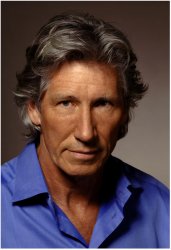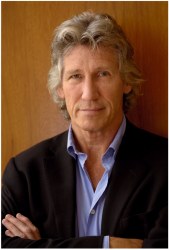Main MenuStatisticsWe have 4 guests online
Visitors: 105581806
|
Home
 Interviews Interviews  Roger Waters interviews Roger Waters interviews  November 2005 - Brain Damage exclusive November 2005 - Brain Damage exclusive
I was so impressed with his work and attitude. He dropped everything to work with us. He made some models, photographed them in San Francisco and got on a plane to New York, and has been working on this, flat out, until he flew over to Rome. His vision of how to do this opened everything up immeasurably and he was a terrific influence. Mark Cunningham: The sound effects, too, were quite spine-chilling at times and very much in line with your previous rock'n'roll work... Roger Waters: David Novack and his collaborator did a lot of work on a Foley stage, chopping things up and being very inventive. Some effects were found on discs but much of it was recorded specifically for the opera. Brian Besterman and David then worked out how best to devise a system that could play them into the live performance. Some of the simplest things were the most spectacular - to be able to play the ticking clock in time was amazing and it came out perfect. Mark Cunningham: You've always been an artist who likes to retain maximum control of his work, particularly in terms of live performance. It must therefore have been an odd experience for you to have created something that was completely out of your hands as soon as you delivered your introduction and moved out into the audience. Roger Waters: It was, and there was very little I could contribute, except with the visuals, where I would occasionally lean over and say, 'you're fucking four bars behind, faster, faster!' So in a way I was itching to get my hands on the controls, because I know I could have got it all precisely in sync only because I know the music better than anyone else. I might even do that one day! I did feel so close to all the people on stage because we'd been in rehearsal for the previous four days, working very intensely, particularly with Rick Wentworth. But during the performances, my heart was in my mouth a lot of the time, although Rick did a fantastic job of keeping the orchestra under control. There were one or two weak links in the orchestra, it has to be said. Some had trouble registering key changes when turning the pages sometimes. One discovered that a woodwind player was in B Flat when everyone else was in F Sharp! But that only happened once and otherwise I thought it was flawless. Mark Cunningham: I was very aware of you at the back, singing along and getting nervous about the synchronisation! Roger Waters: Yes I was. They had very little time to prepare. Sean Evans and Richard Turner, who was operating the video, did a tremendous job but obviously, another couple of days would have helped them perfect the synchronisation and got rid of some of the jumps and judders. Mark Cunningham: I have to say that I was pleasantly surprised to have enjoyed and been quite moved by something that isn't a field of music I would normally go to see. Roger Waters: I'm happy to hear that. I really enjoyed the first night but I was feeling as sick as a dog on the second night. You came to the In The Flesh tour, didn't you? Mark Cunningham: Yes I did... and attending Ça Ira was like a breath of fresh air, after spending all year confronted by huge rock'n'roll productions and loud PA systems! I found it very hard to draw comparisons with anything other than your own work, however, I noticed one newspaper review [La Repubblica] that compared you with Lloyd Webber... how very pleasant for you, considering how you condemned the man in your song 'It's A Miracle' [from Amused To Death]! Roger Waters: Yeah... well, they're clutching at straws. Those reviewers who want to be a bit snippy. And that's alright, I don't mind that. It comes with the territory although I think they're wrong. Ça Ira has some seriously spellbinding melodies in it which sets it apart from what Andrew Lloyd Webber does. They'll say what they will and... whatever... it's alright. The interview is © 2005 Total Production International and used strictly with permission - no unauthorised use allowed. All pictures are by Jimmy Ienner, Jr., and © 2005 Columbia Records & Sony Classical. They are used strictly with permission - no unauthorised use allowed.
|
----- No concerts scheduled |
||||||||||||














